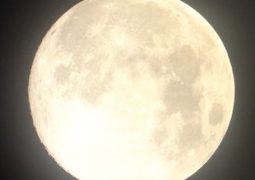Consider this question: what is the essential difference between personal strength and personal power?
It is the characteristic of strength to be natural. It comes from within, and it isn’t the product of any outside agency. It builds on itself and has a foundation, a definable origin. It can’t be removed (without serious catastrophic intervention). It regenerates and restores itself. It is not subject to the understanding and acceptance of other people. It is synonymous with ability. It knows its own limitations, which can be expanded by step-by-step advances. There are many kinds of strength—the strength of the body, strength of will, character, and conviction.
Power, on the other hand, is not natural. Power is often accompanied by, and confused with, authority. No one has power naturally—in the best scenarios, power is earned, developed through discrete experience. But usually, power and authority, are acquired. In order to be effective, power requires the acknowledgement and acceptances of others. ‘You are in charge because we allow it,’ whereas you are strong whether or not other people accept it or not. Unlike strength, which provides feedback telling you that you’ve reached your limit, power has no internal feedback capabilities, and it is only held in check by what the practitioner and the people allow. As we have seen in the last century, power can exceed even the approval of the masses, with catastrophic result.
Power is also a companion of Control. At the beginning of the year, I wrote about control and its abuse: The abuse of control stems from distrust of others, lack of confidence in their abilities/integrity/character, and is a reaction to feelings of vulnerability. When one feels out of control, the inclination is to try and control everything else, often with destructive and even self-destructive results.
The misuse and abuse of power often results from feeling powerless (out of control). Just as the person who has no control over himself tries to control others in order to establish a manageable emotional environment for himself, the person who feels powerless may exercise power and authority over others—simply because he can, and this is the only thing that gratifies immediate emotional needs. Power pre-empts or usurps strength, the way ambition or greed can overwhelm wisdom and discretion.
Counterintuitively, the more power one has, the more vulnerable one is. Martial artists learn this very early—the greater the power (say, for example, using a weapon) the more likely and the harder a fighter is to be attacked. Because power is only effective when displayed, it attracts attention.
This is not to say that power is necessarily evil. Power is like any other tool—its character is determined by how it is used. Power should augment strength, not supplant it. To utilize power without accompanying strength is like having a flame with no candle.
When we have grasped these dynamics, where does this leave us? We have the parallel example of ethics and morals. An ethical person knows it is wrong to steal, to cheat or lie (but does it anyway), and a moral person simply won’t no matter what the temptations are. There is a morality to strength (in fact, a synonym for morality, virtue, also means strength), and there is an ethics of power. It need not be the Power of an official over a populace; it might be the power of one individual over another.
Strength does not come from physical capacity. It comes from an indomitable will.
Mahatma Gandhi
————————————————————————–
If you enjoyed reading this, please take a look at my eBooks on Amazon.com:
Behind These Red Doors: Stories a Cathedral Could Tell : http://amzn.to/1iGMFUp
Lives of the Ain’ts: Comedic Biographies of Directors Errant: http://amzn.to/1nPvqoc
The Inn of Souls: http://amzn.to/1lD7xjJ




